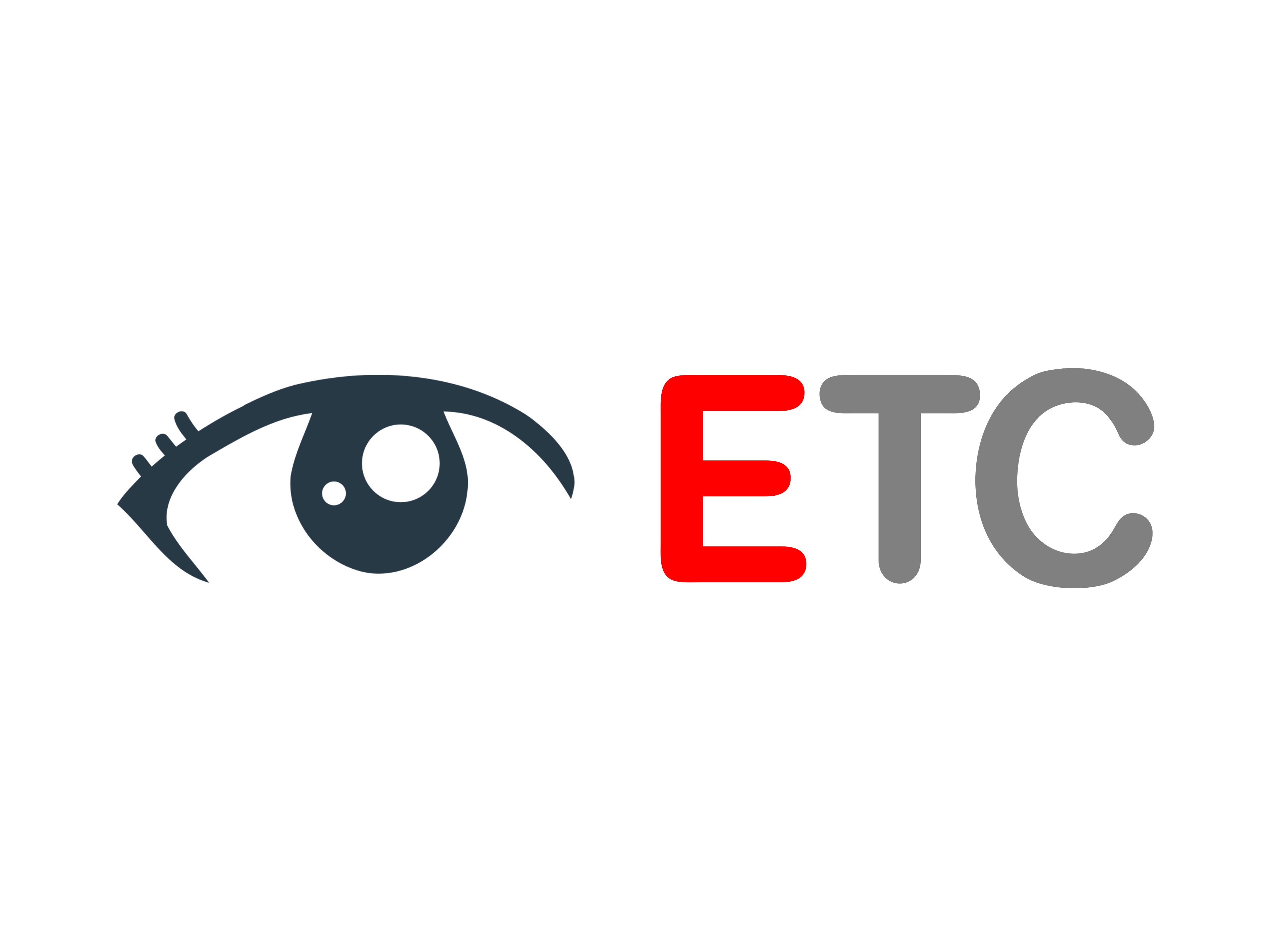Personality Type: Cautious Realist
The “Cautious Realist” personality type embodies individuals who maintain a balanced perspective on life, combining a cautious and pragmatic approach with a firm grip on reality. They value preparedness and thoughtful decision-making while acknowledging the practicalities of the world.
Core Competencies:
FIT Score: 7.3
Emotional Intelligence (EQ)
Moderate – Cautious Realists are generally good at understanding their own emotions but may be reserved in managing or understanding the emotions of others.
Stress Tolerance
Moderate – Their cautious nature helps them prepare for stressful situations, but they may be prone to worry.
Team Compatibility
Moderate – They can work well in teams but may prefer roles that allow them to analyze details.
Communication Skills
Moderate – They are usually clear communicators but may not be the most persuasive or inspiring.
Conflict Resolution
Moderate – Their cautious approach may make them good mediators, but they may avoid conflict when possible.
Motivation
Moderate – They are motivated by stability and the opportunity to apply their realistic outlook.
Adaptability
Low to Moderate – Their cautious nature may make adapting to change more challenging for them.
Empathy
Moderate – While they may not be overly expressive, they generally understand the importance of empathy.
Resilience
Moderate – Their realistic outlook helps them to recover from setbacks, although they may take some time to adjust.
Self-Regulation
High – Their cautious approach often requires a high degree of self-discipline.
Optimism/Pessimism
Moderate to Low – Their realistic outlook may lean more towards pessimism.
Work-Life Balance
High – Their focus on caution and realism often leads to a balanced work-life approach.
Ambition
Moderate – They are generally not overly ambitious but aim for steady and achievable goals.
Interpersonal Skills
Moderate – Their cautious and realistic nature may make them more reserved, but they are generally reliable and trustworthy in interpersonal relationships.
Honesty and Integrity: 10/10
Cautious Realists are highly principled individuals who place a premium on honesty and integrity. They are reliable and trustworthy, often going to great lengths to fulfill their commitments.
Life Balance
Strengths:
-
Pragmatism: Cautious Realists are highly pragmatic, approaching situations rationally and practically.
-
Analytical Thinking: They excel at analyzing situations, identifying potential risks, and making well-informed decisions.
-
Attention to Detail: Their meticulous attention ensures they recognize important information and factors.
-
Dependability: They are known for their reliability, diligently fulfilling their commitments and responsibilities.
-
Organization: Cautious Realists tend to be highly organized, allowing them to manage tasks and projects effectively.
-
Critical Thinking: Their ability to critically assess situations and problems often leads to innovative solutions.
Weaknesses:
-
Overthinking: They may tend to overanalyze situations, which can lead to hesitation or indecision.
-
Risk Aversion: Cautious Realists are often risk-averse, which may limit their willingness to embrace opportunities with uncertainty.
-
Difficulty Embracing Change: They may resist change, preferring stability and familiar routines.
-
Tendency to Worry: Their cautious nature can lead to excessive worry or anxiety about potential adverse outcomes.
-
Challenges with Ambiguity: They may need more explicit, concrete information.
-
Difficulty Taking Initiative: Their propensity for careful planning may sometimes hinder them from taking the initiative in new endeavors.
-
Resistance to Creative Risks: They may be less inclined to take creative risks that involve stepping outside established boundaries.
Cautious Realists excel when they leverage their practicality, attention to detail, and analytical skills. However, they should also manage their tendency to overthink and resist change.
Jobs & Action Plan
Job Profiles Well-Suited for Cautious Realists:
Risk Management, Operations, Compliance
-
Financial Analyst: Their analytical thinking and risk assessment abilities are valuable in the financial sector.
-
Project Manager: Managing projects with a meticulous approach and attention to detail aligns with their strengths.
-
Quality Assurance Specialist: Ensuring products or processes meet specific standards requires a keen eye for detail.
-
Accountant: Their organizational skills and focus on accuracy make them effective in accounting roles.
-
Legal Counsel: Analyzing legal situations and providing well-informed advice aligns with their pragmatic approach.
-
Engineer: Engineering roles benefit from their systematic and analytical thinking.
-
Data Analyst: Analyzing data and drawing meaningful insights are areas where their skills shine.
-
Risk Manager: Their ability to assess and mitigate risks is valuable in risk management positions.
-
Inventory Planner: Managing inventory levels and ensuring efficient supply chains align with their detail-oriented nature.
-
Research Scientist: Conducting thorough research and experiments suits their meticulous approach to problem-solving.
Cautious Realists should seek roles that allow them to apply their analytical and organizational skills while also being mindful of their potential to overthink or resist change.
Innovation & Leadership
Innovation:
Moderate to Low – 6/10
-
Pragmatic Solutions: Cautious Realists excel at developing practical and realistic innovations that address specific organizational needs.
-
Risk Mitigation: They carefully assess and mitigate risks associated with new ideas, ensuring the organization’s stability.
-
Incremental Progress: They often focus on incremental improvements rather than radical changes, maintaining stability while enhancing efficiency.
-
Data-Driven Decision-Making: Their analytical skills contribute to data-driven innovation and evidence-based strategies.
-
Market Sensibility: Cautious Realists have a keen understanding of market dynamics, guiding innovation toward customer needs and market trends.
Leadership:
-
Strategic Thinking: They provide strategic leadership by considering long-term goals and objectives and making well-informed decisions.
-
Risk Management: Cautious Realists excel in managing risks and ensuring the organization’s financial and operational stability.
-
Team Alignment: They align their teams with the organization’s mission and goals, fostering a sense of purpose and commitment.
-
Process Optimization: Their leadership often involves streamlining processes and optimizing efficiency within the organization.
-
Mentorship: Cautious Realists mentor and guide their teams, emphasizing stability, reliability, and continuous improvement.
Cautious Realist – Action Plan
-
Strengths: Use your neutral and cautious nature to make informed decisions.
-
Action Plan:
-
Focus on thorough research and planning in your endeavors.
-
Balance caution with calculated risks when necessary.
-
Provide valuable insights based on your analytical thinking.
“Cautious Realist” personality type, an action plan can be developed to support their pragmatic approach to life while encouraging growth in flexibility, confidence, and openness to new experiences. Here’s a comprehensive strategy:
1. Emotional Intelligence (EI) Quotient
-
Action: Emotional intelligence enhancement focusing on understanding and managing risk-related anxieties and fostering empathetic connections.
-
Purpose: To balance their caution with emotional resilience and improve interpersonal relations.
-
Outcome: Greater emotional depth and improved relationships.
2. Stress Response Analysis
-
Action: Implement stress management techniques that specifically address the anxieties associated with uncertainty and change.
-
Purpose: To help them maintain calm and clarity in uncertain situations.
-
Outcome: Improved ability to manage stress and maintain decision-making clarity under pressure.
3. Adaptability Index
-
Action: Participate in activities that gently push boundaries, such as controlled risk-taking exercises or new hobby classes.
-
Purpose: To gradually increase their comfort with uncertainty and change.
-
Outcome: Enhanced adaptability and openness to new experiences.
4. Cognitive Styles
-
Action: Cognitive flexibility training, including exercises to consider alternative outcomes and viewpoints.
-
Purpose: To expand their problem-solving approach beyond a cautious realism.
-
Outcome: A more versatile approach to challenges, incorporating optimism and creativity.
5. Interpersonal Dynamics
-
Action: Teamwork and communication skills workshops to build confidence in collaborative settings and express cautious insights constructively.
-
Purpose: To enhance their ability to contribute to and lead teams effectively.
-
Outcome: Improved teamwork skills and leadership effectiveness.
6. Values and Motivations
-
Action: Values discovery sessions to align personal and professional goals with core values, reinforcing the positive aspects of their cautious realism.
-
Purpose: To ensure that their cautious approach is meaningfully aligned with their objectives.
-
Outcome: Increased motivation and satisfaction from pursuing goals aligned with personal values.
7. Behavioral Patterns
-
Action: Mindfulness practices and reflective journaling to recognize and modify any overly cautious behaviors that limit growth.
-
Purpose: To develop a more balanced approach to risk and opportunity.
-
Outcome: Healthier behavioral patterns that support well-being and personal growth.
8. Communication Preferences
-
Action: Advanced communication techniques focusing on assertiveness and positive framing to share cautious perspectives without negativity.
-
Purpose: To communicate concerns and insights effectively without dampening enthusiasm.
-
Outcome: More impactful and positive communication.
9. Life Satisfaction and Fulfillment Metrics
-
Action: Regular check-ins and life satisfaction assessments to identify and pursue areas for personal joy and fulfillment outside of work.
-
Purpose: To cultivate a well-rounded life that balances professional caution with personal joy.
-
Outcome: Higher overall life satisfaction and well-being.
10. Neuroplasticity and Learning Styles
-
Action: Encourage continuous learning in diverse fields to stimulate intellectual curiosity and cognitive flexibility.
-
Purpose: To break out of comfort zones and embrace new ideas and skills.
-
Outcome: Enhanced learning agility and intellectual growth.
11. Digital Behavior Analysis
-
Action: Digital literacy and etiquette training to navigate online interactions confidently and safely, aligning with their cautious nature.
-
Purpose: To optimize the use of digital tools for personal and professional growth.
-
Outcome: Effective and secure digital engagement.
12. Cross-Cultural Dimensions
-
Action: Cross-cultural experiences and training to broaden perspectives and appreciate the value of diverse approaches, including risk-taking and innovation.
-
Purpose: To mitigate the risk-averse tendencies with a global understanding and acceptance of different attitudes towards risk and change.
-
Outcome: A more globally informed and culturally adaptable perspective.
This action plan is tailored to nurture the strengths of the “Cautious Realist” while gradually expanding their comfort zone, fostering a balanced approach to life’s challenges and opportunities. Each step is designed to be actionable and measurable, providing a clear path toward personal and professional development.
EmotionalCautious Realists Top Emotional Stages Categories:
-
Neutral Emotions
-
Self-Doubt & Insecurity
-
Well-being & Contentment
Interests & Hobbies:
-
Budgeting and Finance
-
Home Organization
-
Risk Assessment
-
Local History
-
Nature Hiking
-
Gardening
-
Cooking
-
DIY Crafts
-
Fishing
-
Board Games

Three potential best matches based on complementary traits and potential for mutual growth:
-
Cautious Realist
-
Thoughtful Analyzer
-
Serene Philosopher
-
Aesthetic Intellectual
Growth Phrases
-
“Embrace calculated risks to discover new opportunities and growth.”
-
“Enhance decision-making with creative problem-solving techniques.”
-
“Develop flexibility in plans to adapt to unforeseen circumstances effectively.”
-
“Cultivate optimism to balance caution with positive outlooks.”
-
“Expand your comfort zone gradually to build confidence in new situations.”
-
“Practice active listening to gain deeper insights and perspectives.”
-
“Strengthen emotional intelligence to complement your analytical skills.”
-
“Seek collaborative projects to broaden your viewpoints and approaches.”
-
“Prioritize self-reflection to understand your motives and fears better.”
-
“Engage in continuous learning to stay adaptable and informed.”


